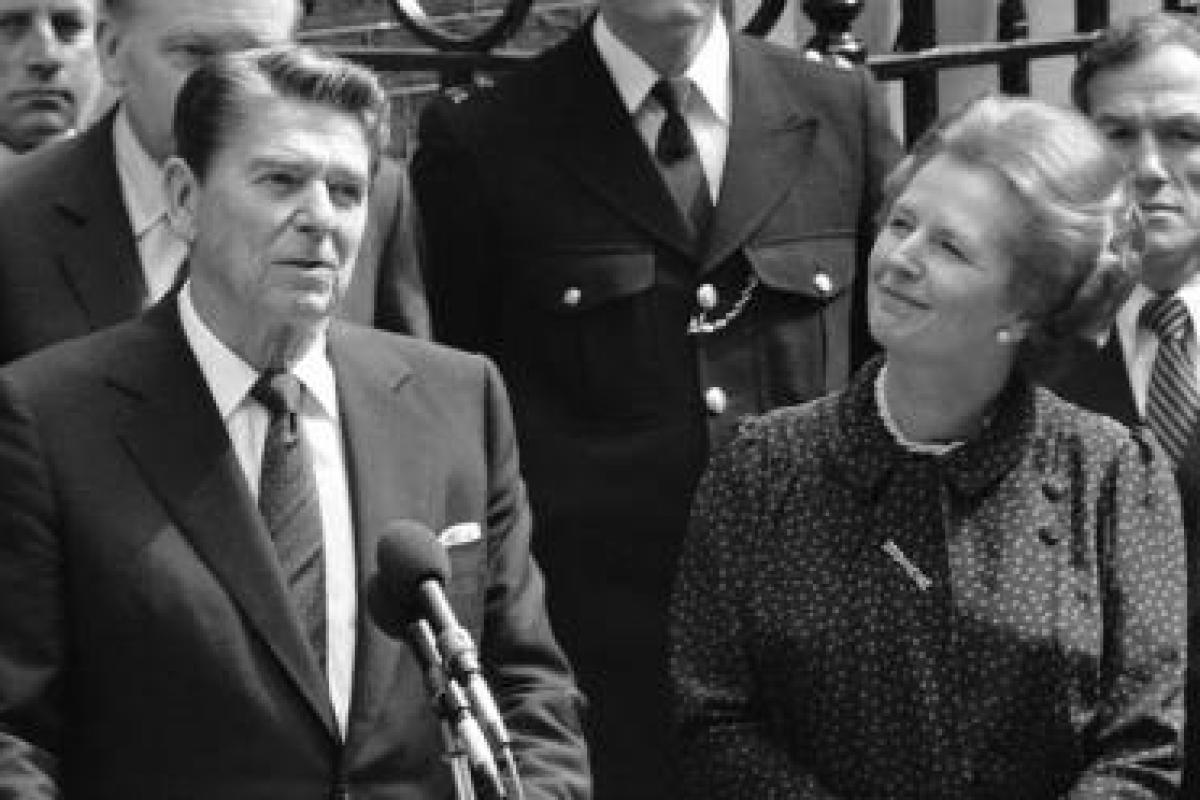It’s not quite clear what he meant by this. But if his statement is simply another (admittedly more eloquent) expression of our industry’s old-school, left-of-centre political partisanship, then Mr. Senior is merely the latest traveller down a well-worn ‘creative’ path: Labour good, Tories bad. Tories very, very bad, if the volume of everyday, unprompted political spleen-venting and kvetching is anything to go by.
Witness the pillorying of the brilliant Frank Turner when, as a musician, and a folk-punk-fusion musician at that, he had the temerity to suggest that his political heroes were classical liberals such as John Stuart Mill, Adam Smith and Thomas Jefferson. Or the shrill, near-celebratory, response to Margaret Thatcher’s death at least in parts of adland, last year.
People can think and vote for who they like, obviously. Lots of incredibly brave folk over the centuries have risked, and sometimes lost, their lives in order to guarantee our freedom to opine and express.
The problem is that, all too often in advertising, the ‘Labour good, Tories bad’ mantra goes unchallenged. This is a shame because what may well be a compelling political argument risks instead coming across as a sort of automatic group-think, which often doesn’t get beyond some very basic tautologies.
For a sector that claims to be generally expansive of thought, interested in challenge and the search for the truth, this is both ironic and tribalistic. And of course tribalism’s great strength – unwavering loyalty to the cause – can also be its greatest weakness. Because, if one isn’t very careful indeed, things can quickly degenerate into an intellectual torpidity that manifests in knee-jerk responses that are so clichéd, one can almost predict them.
Dogma is never very attractive, particularly in politics. And especially when there is, for those who want to go beyond the (admittedly fun) adult equivalent of poking-the-jellyfish-on-the-beach, a fairly powerful counter-case to be made to the received wisdom.
Let’s be clear. I’m not advocating one way or another, and I’m certainly no Tory. It’s just that, when you look at it logically, creativity in the whole – and advertising in particular – has an obvious co-dependency with capitalism. Economies that, to a greater or lesser extent, set sail in Jefferson’s “boisterous sea of liberty”, tend to enjoy a much greater degree of diversity in creativity than those which do not.
Capitalism depends on difference; the unusual, the stand-out and - above all - the new. Creativity is novation and novation is creativity; magically joining worlds to give birth to new ones.
The brutal schema of ‘survival of the fittest’ that underpins right-of-centre thinking on economics has a relentless appetite in this respect. The beast, by definition, can never be satiated. In fact, the more it is fed, the hungrier it gets – always wanting more; more products, things, people, art, choice, ideas. A relentless, exponential cycle of winning, losing, succeeding, failing – a phenomenon that cannot help but produce a huge amount of waste, but – equally - one that cannot but result in much greater creativity, in the true sense of the word. Capitalism doesn’t ‘prefer’ or ‘think’ about this. Its nature simply demands it, of all of us: an iterative, often unforgiving, tinkering in search of optimal results.
Contrast this against the, often incredibly well-intentioned, interventionist policies or meddling that, one way or another, characterise left-of-centre thinking: the central, governmental efforts to steer people, businesses, nations towards a different, ‘better’ way. Socialism certainly doesn’t kill creativity, but its insistence on control, regulation, will inevitably tend towards a top-down, dirigiste approach that ultimately delivers uniformity. Exhibit A: The Soviet Union, exhibit B, avec, mes amis francais, mes excuses: France.
Ronald Reagan knew this. And it is notable that in his Farewell Address, the famous articulation of the United States as that Shining-City-On-A-Hill, he chose to use the C-word – America was for him, 'a city with free ports that hummed with commerce and creativity.'
Like it or not, the truth is that absent him, absent Thatcher, most of us working in the creative industries today would likely be doing other jobs, and significantly less creative ones at that. Creativity, of course, in many respects comes from within, and deep within at that, but it is a fragile flower – and like all fragile flowers, it needs the right conditions in which to flourish. And it is at least arguable that the definitive – and deliberate – shift that Reagan and Thatcher made in the 1980s away from centrally-controlled, state-led economies and towards the free market, was the hothouse that incubated the huge growth of the creative industries that we have seen in the last 30 years: the starter pistol for a global creative race that is still being run today.
Who was it again who said 'Labour isn’t working'?
This piece is by Nick Jefferson. Read more from him in our Clubhouse.
